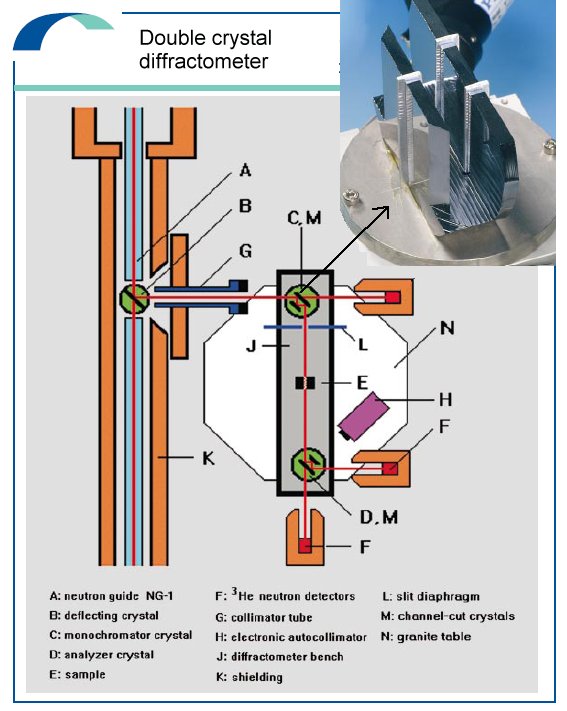 |
Here are a few of the more exotic uses of Si. I
keep this brief; details might be filled in later. |
|
 |
The kilogram
standard in Paris is getting lighter - nobody knows why. Efforts are under way to use a perfect Si crystal
as the new standard. In addition, this would also serve to determine Avogadro's constant to a better accuracy. |
|
 |
Very precise mirrors, possibly coated with a sequence of layers to act as X-ray mirrors, need practically atomically flat substrates
of considerable lateral extension. Your run-of-the-mill 300 mm Si wafer is already much closer on this target than
anything you can make with all possible tricks from a piece of glass or metal, for example. |
|  |
The picture below shows a neutron
diffractometer using Si crystals in three places. The inset
shows on of the "slotted" rather large Si crystals. The principle is that only neutrons with a wavelengths
meeting the Bragg condition will be reflected. |
| |

Copyright GKSS; Courtesy of GKSS |
|
|
 |
There are things like "Photonic crystals"
and other novel optical components made from porous Si. |
|  |
There are even high explosives made from porous Si; also all kinds of sensors, electrodes for micro fuel cells, and much
more. For some details activate the link |
|
 |
Finally and ironically: Mechanical watches
of the expensive to extremely expensive variety (Jaeger-LeCoultre,...) have started to use Si parts inside. Of course,
using Si for making a simple "watch" chip and a SiO2 crystal for the frequency normal
allows to make a much better watch at a tiny fraction of the costs of a mechanical one. |
| |
|
© H. Föll (Semiconductor Technology - Script)
